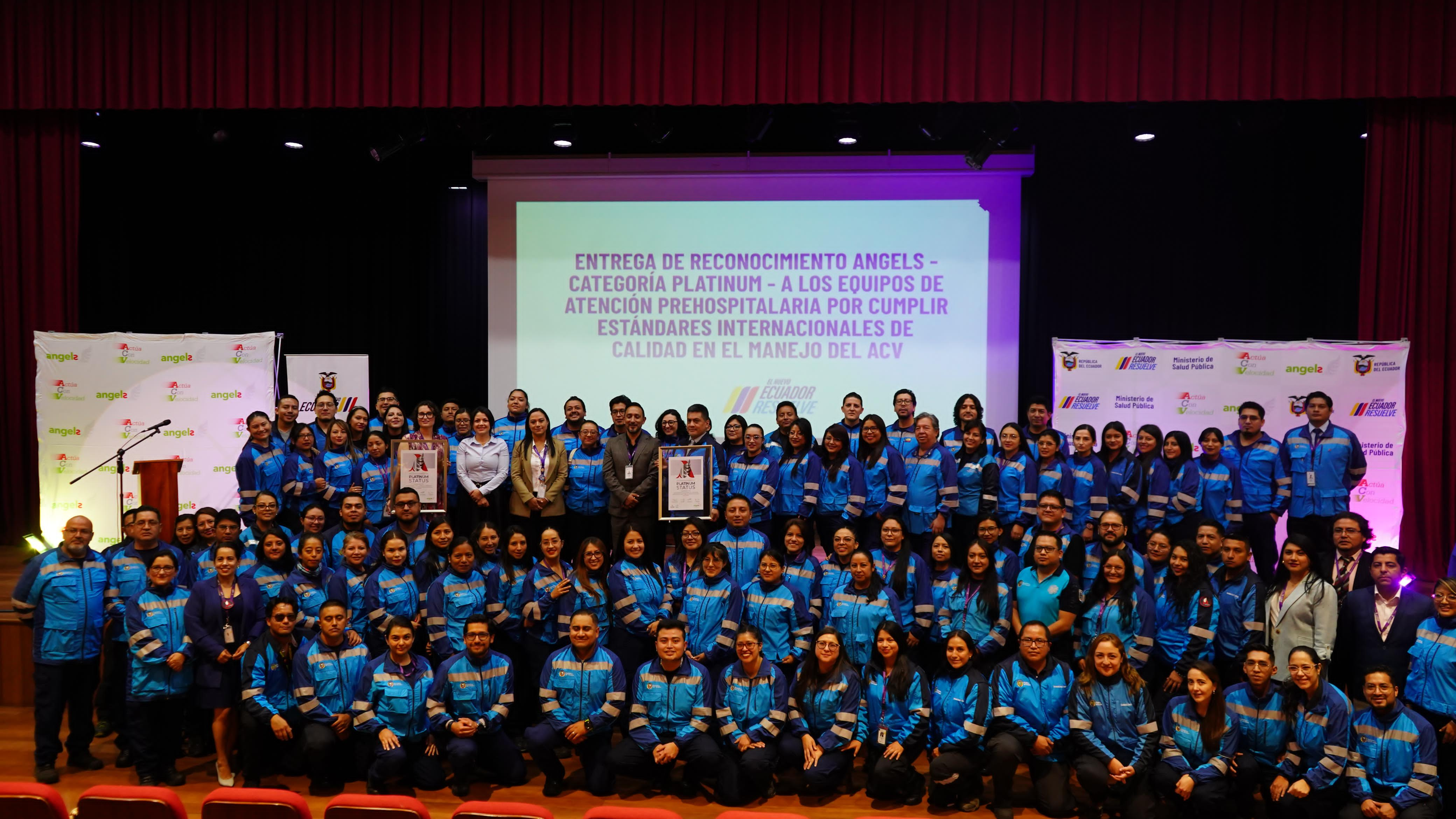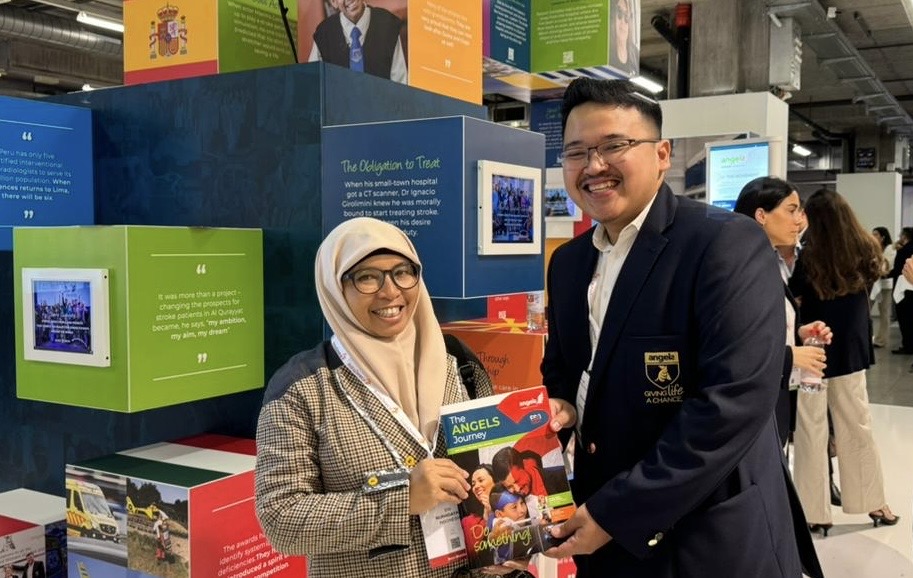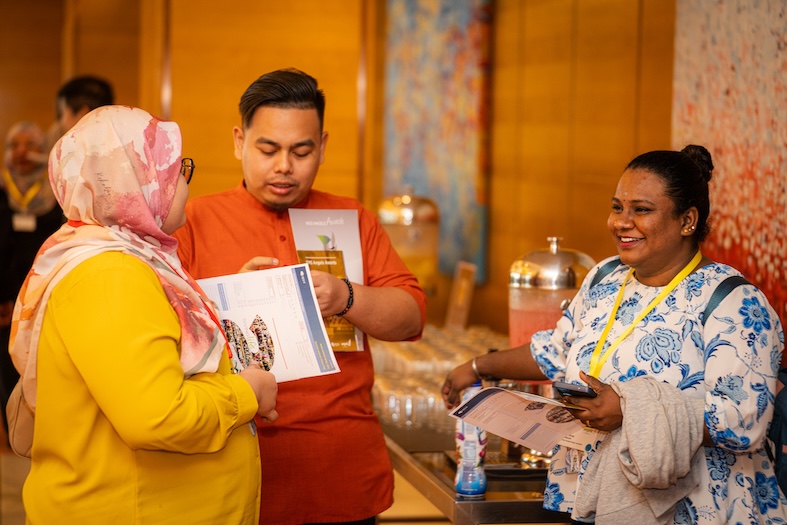
How did your interest in neurology come about?
As a student I became fascinated by the anatomy and physiology of the nervous system, and later became enthusiastic about the clinical field. There was and still is so much to learn about the normal functioning of the brain and the nature of neurological diseases.
What has been the most rewarding experience in your career to date?
Finally having my own group to lead offers the opportunity to really pursue my vision regarding the research topics I wish to prioritise, and the values I wish to establish in my working environment. It’s a big challenge which is going rather well so far. I am empowering and observing the growth of the most talented and hard-working persons in the group. The expansion of our research and clinical group to include colleagues from different specialities is offering new opportunities. Moreover, the group is expanding the collaboration in Italy and abroad.
How does your research and clinical work in each of the complex fields of stroke and headache enrich your understanding of the other?
I was trained in a school with long experience in stroke epidemiology and treatment. It was obvious for me to be in this field. The interest in headache came by chance, since there was no one taking care of headache patients when I started my clinical activity. So I was assigned to this field. Clinical and research activities in these two fields are remarkably different. However, there is a link between the two because migraine with aura is a risk factor for stroke and patent formanen ovale (PFO) is involved in both conditions. My interest now is to try to better understand why PFO in some individuals is associated with ischemic stroke and how it can contribute to migraine. I think negative evidence regarding treatment of PFO is mostly due to the fact that we cannot discriminate between innocent and guilty PFOs. Novel techniques in the study of cardiac structure and function may be of help.
You have made a major contribution to the ESO through your work on guidelines. Why are guidelines important?
Guidelines are really important to drive the most appropriate care of stroke as well as many other diseases. They are important for clinicians, to provide guidance for therapeutic and diagnostic decision-making; they are important for researchers to identify grey areas; for funding agencies to identify and evaluate clinical care improvement projects; for policy makers to guide decisions about the organisation and reimbursement in health systems; for patient organisations to identify interventions they should have from the system they live in. A unique single European guideline would be ideal, with a panel including experts. National translations and adaptation could then adapt it to local care. This would help save time and resources and avoid conflicts.
As an active member of the Women Initiative of Stroke in Europe (WISE), please describe how gender difference and inequalities impact stroke care.
Gender impacts on stroke mechanisms and response to treatment because the biology of men and women is different. Better understanding of gender-related peculiarities may improve stroke care. Studies have reported some inequalities in stroke care; these differ from country to country and reasons may vary across systems of care and cultures. WISE is also a community that tries to support women in their professional careers and to reach leadership positions. It’s my personal hope that this will not be needed in the future, but for now it is good to see that the mission of WISE is being embraced not only by women but also by many esteemed male colleagues.
You have described ESO as your home. What changes do you propose for making it an even more welcoming home for Europe’s stroke community?
The ESO has accompanied my growth since the very beginning of my career. I remember very well attending the ESO summer school in Krems for the first time nearly 20 years ago. Then I started to submit contributions to conferences, was part of the Young Stroke Physicians Committee, was then invited as speaker and started to have an active role in the ESO guideline committees. I was really honoured to become co-chair of this committee and invested a lot of my time and energy in carrying out my task. The opportunity to become president is a privilege I will honour to the best of my ability. ESO is a welcoming, open and fair society, strongly built on values of democracy and excellence. The same high values that drove the society in the past will continue to stand during my presidency.
The ESO Summer School comes to your city next September.
I am happy and proud to host the summer school in L’Aquila. It will be a privilege to welcome young colleagues with a strong interest in stroke. I’ve set up a scientific committee with senior and young members in order to build a strong and appealing programme. In addition to teaching it will be important to transmit the sense of the society and the community and its values of scientific integrity, excellence and continuous innovation. There will also be opportunities to get to know each other and enjoy the city and its surroundings. Though not on the tourist map, L’Aquila is a city of medieval origin whose charm remains unaltered although it was rebuilt in recent years after a tremendous earthquake.

As teacher, mentor and researcher active in several societies, how do you achieve balance in your life?
I really love my work and feel blessed for the opportunities I have. The diversity in everyday activities is energising. I try to do my best and be organised in order to save time. I am also blessed since I have excellent fellows who support me and are taking over part of my duties and responsibilities. Working with a reliable team is key, as well as having a supportive family. I love reading, photography and travel and whenever possible try to escape even for a day or two with my family.
What do you hope to see as your legacy as ESO president?
Europe has many diversities and peculiarities in stroke care. In the past years, ESO has done a lot to flatten diversities and improve the stroke care standards across low- and middle- income countries. There is still a lot to do and this work will continue. Additionally, ESO has a strong agenda with several flagship programmes including the annual conference, guidelines, SAP-E, European Stroke Journal development, ESOTA. All those activities are going well thanks to the incessant work of many individuals in our community and will remain at the top of ESO priorities in the coming years. Additionally, we aim to improve our advocacy actions in order to have more funding for stroke research and prioritise the needs of stroke care. My agenda is a work in progress since I am only at the beginning of my role as president-elect. I will strongly pursue values of inclusiveness, excellence and dedication to the society, and make the work for ESO a top priority in my agenda.
Please comment on the role of the Angels Initiative in improving stroke care and building the stroke community.
The Angels Initiative is among the strongest drivers of the recent improvements in stroke care across Europe. It has brought so much to many hospitals and has the power to let so many feel part of a big community and a big project aimed at improving stroke care.


